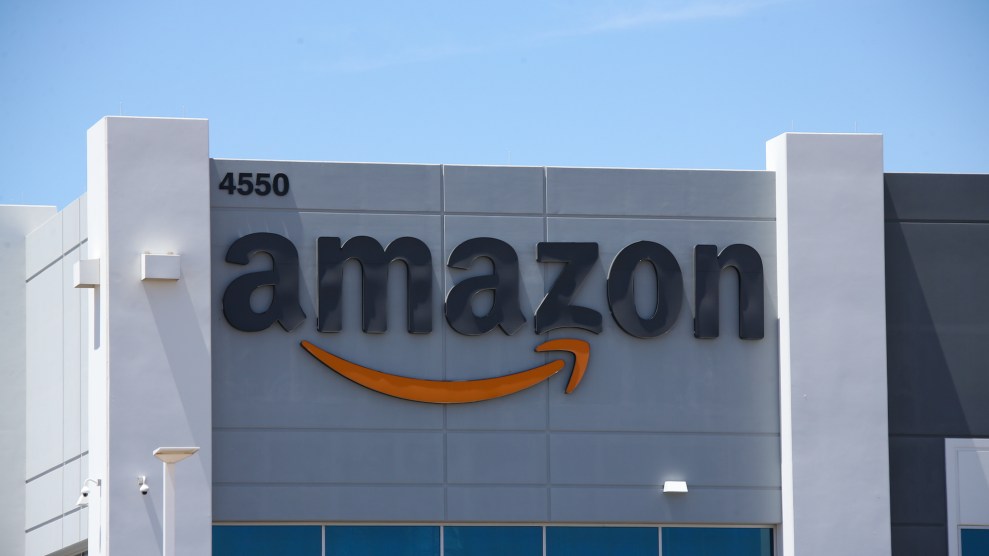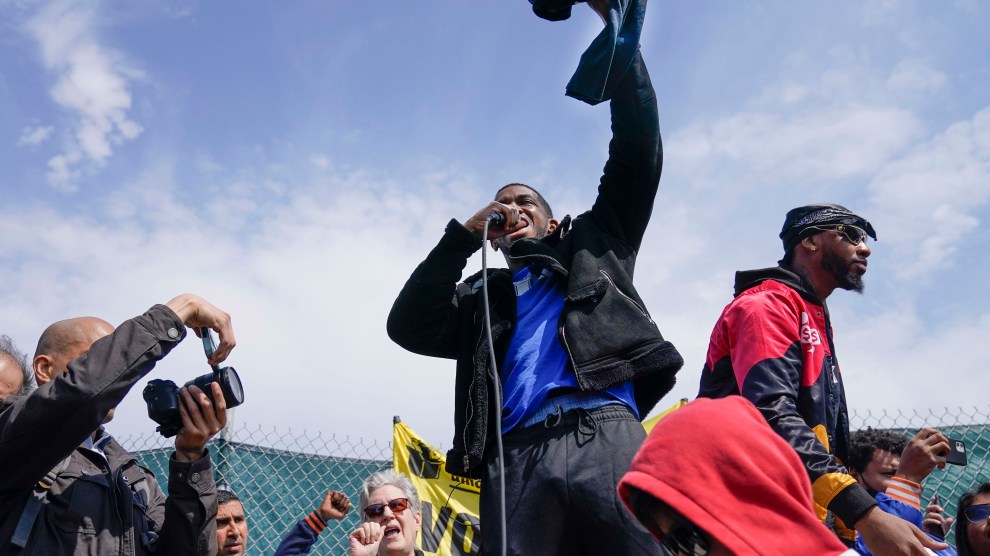
An Amazon fulfillment center in North Las Vegas, USGabe Ginsberg/SOPA Images/Zuma Press
On Tuesday, nonprofit organization Disability:IN released its annual “Best Places to Work” Disability Equality Index, which grades how well companies prioritize and accommodate disabled employees. One company that earned a perfect score: Amazon, which has been accused of disability discrimination by state agencies and current and former staff.
Disability:IN, formerly the US Business Leadership Network, started more than a decade ago with a mission to improve disability inclusion across businesses. 485 companies across 30 industries participated in its 2023 ranking, which it bills as “the leading independent, third-party resource for benchmarking disability inclusion policies and programs inside corporate America.” But many companies on the list are also corporate partners of Disability:IN—including Amazon, with a score of 100. According to federal tax filings, in 2021, Disability:IN received over $700,000 in the form of membership dues from firms like Amazon.
Amazon has been the subject of numerous investigations alleging hostility toward disabled workers and their requested accommodations, as well as grueling, physically harmful working conditions and schedules for drivers, warehouse workers, and other employees. In May 2022, Amazon was accused of discriminating against disabled workers by the New York State Division of Human Rights, which alleged that managers skipped sessions with the company’s in-house “accommodation consultants” about modifying schedules and tasks, according to Reuters. The Department of Labor also found in February that Amazon “exposed warehouse workers to a high risk of low back injuries and other musculoskeletal disorders” due to unsafe working conditions in six Colorado, Idaho, and New York facilities. And Jordan Flowers, an Amazon Labor Union co-founder who lives with lupus, told me previously that he was terminated by Amazon while trying to get accommodations.
Other partners which received a score of 100 include tobacco multinational Altria, which agreed in May to pay $235 million to settle thousands of lawsuits over its Juul nicotine vapes, and Nestlé, which has come under fire for debilitating forced labor, including child labor, in its supply chains. Many airlines known for frequently losing or destroying travelers’ wheelchairs made appearances, as did CVS Health, which received yet another perfect score—and which took a case to the Supreme Court in the hope of a ruling that federal bans on disability discrimination didn’t extend to unintentional discrimination. (CVS, also the parent company of health insurer Aetna, withdrew its case after advocacy by disability rights groups.)
Disabled people make up a growing part of the US workforce, according to data from the Bureau of Labor Statistics, with 21 percent of disabled people employed in 2022 compared to 19 percent in 2021. For disabled people in the workforce, underemployment and unemployment are tied to un-inclusive workplaces: accommodations like working from home, being able to take breaks, or receiving written directions can be crucial to maintaining employment and being able to manage symptoms of chronic health conditions.

















